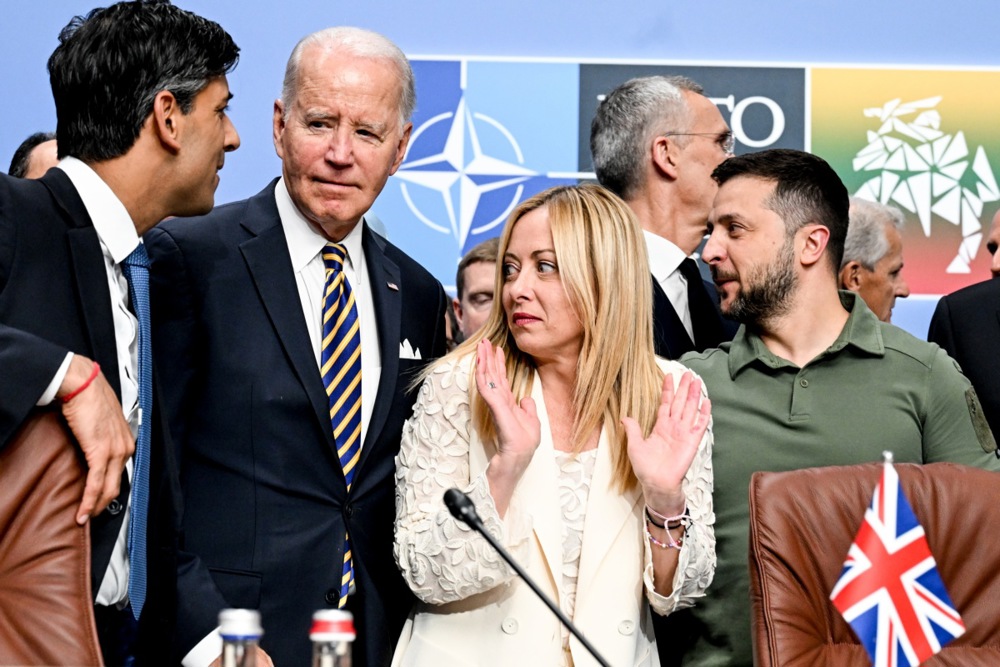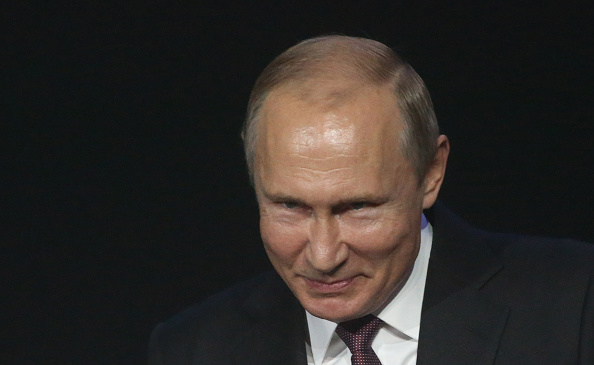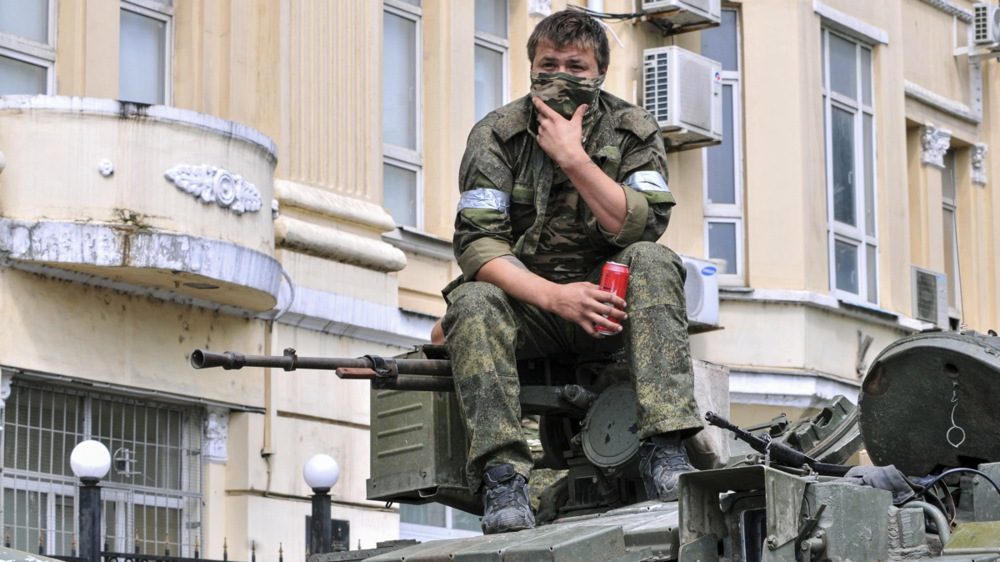For all the pomp and ceremony attending the French leg of Xi Jinping’s European tour, it is the stops in Budapest and Belgrade that carry the greater geopolitical significance for the future.
Predictably, the majority of Euro-elite commentary around the Red Emperor’s coming has focused on EU-China trade relations, particularly as regards the EV situation.
For the past week, we have been treated to reflections on the presumed Macron-von der Leyen “good cop-bad cop” tactics, allegedly for gaining some advantage over the Chinese. And Macron — whose behaviour and statements on Ukraine in recent weeks have cemented his profile as a one-person geopolitical calamity to rival Merkel — has been feted, in some quarters, as a great statesman striding the world stage.
But Xi chose France as his main destination for a power voyage for the same reason that Putin did in 2017 (still fresh from imposing the Minsk accords at gunpoint): an immensely gullible Macron playing “Jupiter” in Paris, ready to roll out the red carpet to autocrats in the name of “statecraft.”
There is not much more that Macron’s France can offer at this point except a useful, unwitting cover for the far bigger manoeuvres that the revisionist geopolitical sharks of our days are enacting at “Europe’s” expense. This time it was no different: the real action was not in the “values”-suffused diplomatic environment of Paris, but in the harder-edged nationalist capitals in Europe’s east.
Don’t be fooled by Xi’s talk of “cooperation” and “co-existence”, whether with Europe or the US. It doesn’t mean what we think it does according to our understanding of these terms.
China’s multi-millenarian history does not admit of any notion of co-equality in the Western sense: as Kissinger and others observed long ago, Imperial China (which is what any Chinese state tends towards) can only be at the apex of the world hierarchy. It can only have tributary relationships with other countries, whereby they pay tribute to the Middle Kingdom.
There may be periods of chaos, even degeneration — such as what the Chinese call the “century of humiliation” at the hands of Western colonial policy in the 19th and 20th centuries — but the end goal, the only “correct,” legitimate and thus acceptable arrangement of world affairs, in Chinese eyes, is unquestioned Chinese hegemony.
This is why everything that China does in geopolitical terms, even more than Russia, which ultimately is heir to the European, not Asian, imperial tradition, must be understood through the prism of this final aim and comprehensive notion of absolute primacy.
The purpose of Xi’s visit, therefore, was not “trade.” That was merely the excuse. Still less was it anything to do, really, with the self-important and failed elites running Europe from its Western end.
Rather, Xi descended upon the European peninsula to lay down a marker in relation to both Russia and the US: a claim on Europe’s future alignment. He is operating on two of the vulnerable political seams of the continent — Hungary and Serbia — and wants to illustrate the extent to which China is already a player in the region.
Where Europeans conceive of their continent in terms of the EU bloc and the NATO alliance, and positively identify with these constructs, China primarily sees a collection of disparate countries with individual interests.
In Peking’s eyes it is only circumstantially — and, at the scale of history, temporarily — that the Old World states have been drawn together under the umbrella of the Washington and Maastricht/Lisbon treaties.
Of course, the idea that the EU and even NATO itself might not last forever and that they are not, in fact, “natural” to this continent or any other, is incomprehensible to the European mind with its “normative” conceits and its delusions of grandeur.
But Xi knows that things can change, and indeed are changing. He knows that the key to Europe’s geopolitical destiny lies in Ukraine. At the global scale of Peking’s strategy, Russia is not as much an ally as a tool.
Putin’s war effort depends almost entirely on Chinese support, and Xi’s method is to wait until both sides — the Russians and the Western alliance including Ukraine itself — are exhausted. They are certainly locked in a high cost, low reward (to either of them) struggle, for an indefinite amount of time.
America will also be bound to continue its rebalancing towards the Indo-Pacific, drawn in, of course, by China’s own pressure on Taiwan, even if it will not “abandon” Europe.
All this leaves China the true arbiter of the larger game in this part of the world. Peking can force a conclusion to the Ukraine war whenever it wishes, not suddenly, to be sure, but it has all the leverage it needs on Russia.
If peace is accomplished with decisive Chinese help — and the chances of that under a Trump administration are not remote at all — then we are likely to see a wholesale alignment of Europe, Ukraine included, with Peking.
If that sounds too dramatic, consider the question of who will stand up to the Chinese at that point, at war’s end. Not Russia, with its economy more deeply dependent on the People’s Republic of China than ever, and facing a long, difficult recovery from the war.
Ukraine will likewise have no choice but to accept not just Chinese mediation (and, possibly, Chinese guarantees) but also Chinese reconstruction funds. The notion that it will be Europe who will pay the hundreds of billions needed for rebuilding Ukraine in the years to come is risible.
Besides, Ukraine was already seeing strong Chinese investment before the war. The flows of yuans will be even more welcome, indeed, desperately needed, after the conflict.
And this is where Hungary and Serbia come in: the perfectly located anchors for Chinese influence in a post war South-eastern Europe, close to the former theatre of conflict and positioned just right, politically and geographically, to control Europe’s options with respect to Ukraine’s post war orientation, but also to keep Russian expansionism in check from Peking’s perspective.
It may be countered that all this is speculation. Perhaps, but it represents a logical and realist pathway for future Chinese policy in Europe, based on the changing balance of power between the great geopolitical forces at play in this part of the world.
Seen in the broadest context of global strategy, Europe is the great prize that will decide the outcome of the great US-China competition in the 21st century.
Europe itself no longer has any real agency; it is not a player in its own right, but a piece on the board, to be captured, or lost, by one of the two chess masters.
China needs to dominate Europe in the long term, to bring the US to heel. We are unused to even imagining this sort of ambition for Peking, certainly not in this part of the world, because there is no precedent for it. And modern Chinese diplomacy and geostrategy, like the Chinese military, has never operated at the level suggested here.
But as sure as night follows day, and as clearly as the Chinese military and space build-up, China is bound to take its strategic action in the European region to a new stage; it can’t afford not to.
It may well be that sometime in the coming years we will look back on Xi’s European tour and recognise it as the real start of this prospective new phase in China’s geopolitical offensive in Europe.
The key battleground, as Putin, too, has long known, is not the Baltics or Northern Europe — making NATO prioritise that area must rank as one of the greatest triumphs of reflexive control in history — but the Black Sea Region, including the Balkans and out to Hungary.
If China gets a foothold in this space, per Xi’s declared intent with his visit this week, its chances of eventually aligning Europe to its own geopolitical sphere of influence will grow immensely, perhaps decisively. Peking is likely only waiting for the right moment to make its move, starting with a diplomatic intervention in the Ukraine war.
America’s own slow drifting away from this part of the world is playing into Xi’s hands, and China’s loud sabre rattling in the Western Pacific only reinforces this trend. We should thus revisit our assumptions about Chinese grand strategy and realise that it may be Europe, not the First Island Chain, that is really up for grabs in the years to come.






Who should next lead NATO? A Secretary General from Eastern Europe is long overdue and the only real option is Klaus Iohannis